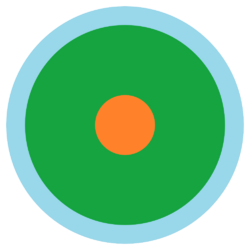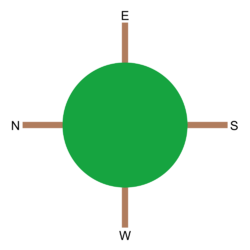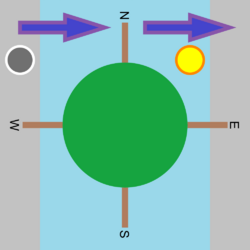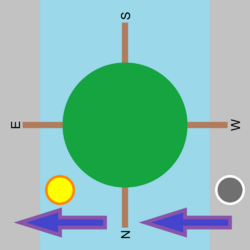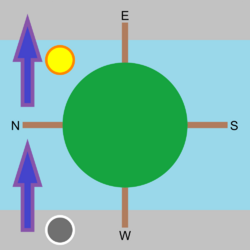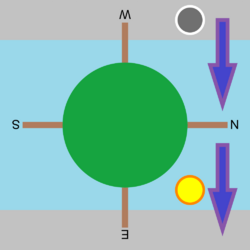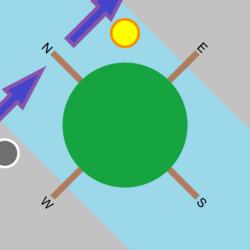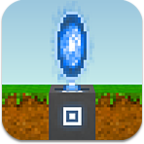World Location: Difference between revisions
>Craig.Davison |
>McClaw m (McClaw moved page Asystole to World Location over a redirect without leaving a redirect: undoing vandalism) |
||
| (5 intermediate revisions by 3 users not shown) | |||
| Line 1: | Line 1: | ||
A | A [[blockhead]]'s '''location''' can be determined using several methods. | ||
==Above Ground Navigation== | ==Above Ground Navigation== | ||
| Line 41: | Line 41: | ||
==Underground Navigation== | ==Underground Navigation== | ||
Provided the area above where a | Provided the area above where a blockhead is underground has been explored, it is possible to pan the camera to the surface and figure out the blockhead's location there. The altitude can be figured out by zooming out to map mode and comparing the blockhead's location to the surface level or the water level. | ||
[[Category:Guide]] | [[Category:Guide]] | ||
Latest revision as of 08:46, 21 August 2016
A blockhead's location can be determined using several methods.
Derived from World Location Guide by Fonceai.
A player can determine their location by the direction of the movement of the sun, moon, or stars over the course of the day. For the purposes of these charts, the player is always at the "top" of the world. The more vertical the sun/moon/stars move, the closer the player is to an equator. The more horizontal they move, the closer the player is to a pole.
Picture your world as a circle, with the sky, ground, and core:
Now add the poles:
Examples
North Pole
Near the north pole, celestial objects will move from left to right.
South Pole
Near the south pole, celestial objects will move from right to left.
East Equator
Near the east equator, celestial objects will move upward, from the bottom of the screen to the top.
West Equator
Near the west equator, celestial objects will move downward, from the top of the screen to the bottom.
Between Poles
For example, between the north pole and the east equator, celestial objects move both upwards and towards the right.
Provided the area above where a blockhead is underground has been explored, it is possible to pan the camera to the surface and figure out the blockhead's location there. The altitude can be figured out by zooming out to map mode and comparing the blockhead's location to the surface level or the water level.
